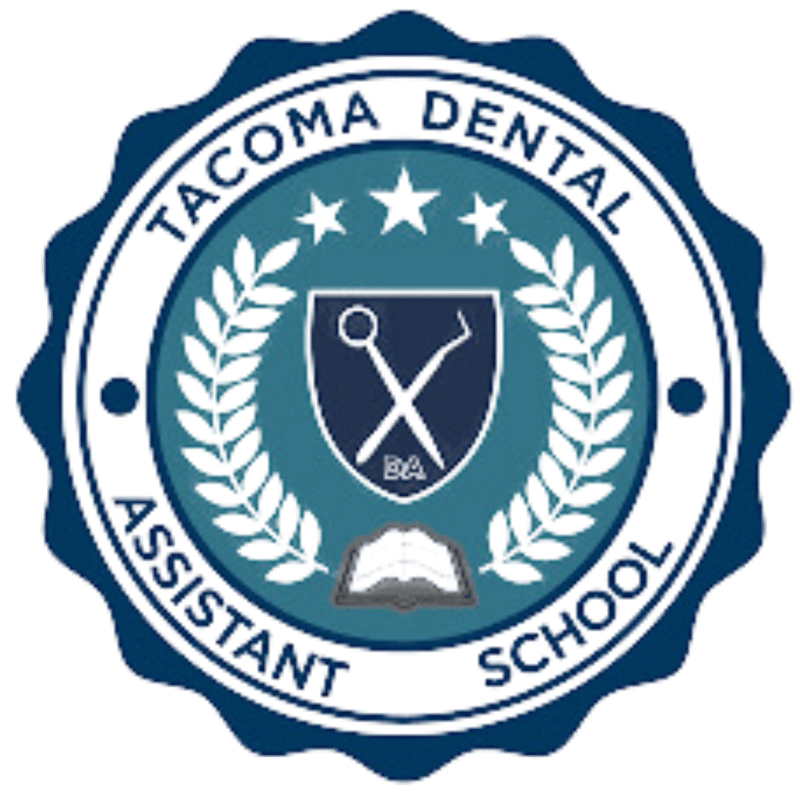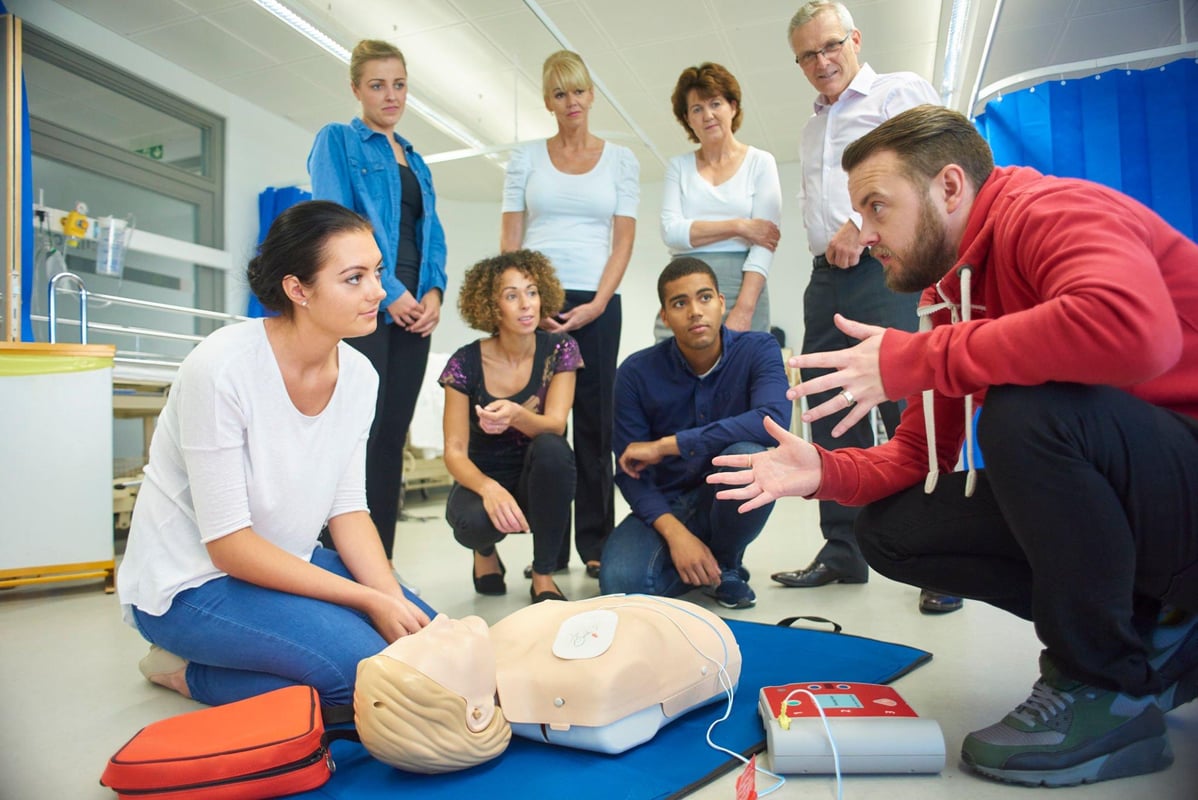
Financial aid (may be available)

$1,450 to start
$3,890 total

Financial aid (may be available)

Financial aid (may be available)
$2,915 total
$36 total
$2,420 total
$85 total
No cost info
No cost info
No cost info
$36.50 total
No cost info
No cost info
In an emergency, knowing basic first aid can mean the difference between life and death. For those in Seattle looking to learn these lifesaving skills, a wealth of first aid classes are available. Whether you're a parent wanting to ensure the safety of your child, a professional required to have first aid certification, or simply a Good Samaritan wishing to be prepared, this blog post will guide you through the process of finding the right first aid class for you in Seattle.

First aid is the immediate care given to a person who has been injured or is suddenly taken ill. It includes self-help and home care if medical assistance is not available or is delayed. It also includes the follow-up care given by healthcare providers.
First aid can have a significant impact on outcomes, especially in serious situations such as cardiac arrest or choking incidents. Equipping yourself with first aid skills can give you the confidence to handle emergencies, prevent situations from getting worse, or even saving a life.
To be an effective first aider, it's crucial to undergo training and receive certification from a recognized provider. Some of the fundamental requirements include:
Basic knowledge of first aid principles and emergency treatment
Understanding of the legal and ethical aspects of first aid
The ability to assess an emergency situation quickly and calmly
Physical ability to provide first aid, which may include lifting, bending, and applying pressure
When choosing a first aid class, consider the following:
Accreditation: Ensure the program is nationally recognized and accredited.
Course Content: The course should cover a wide range of topics, including CPR, AED use, bandaging, and emergency response.
Instructor Qualifications: Instructors should be experienced and capable of teaching both theory and practical skills.
Class Size: Smaller classes allow for more personalized instruction and hands-on practice.
First aid classes typically combine theoretical learning with practical training. You can expect to:
Learn about the basics of human anatomy
Understand the principles of first aid and emergency response
Watch demonstrations of first aid techniques
Practice these techniques, often using mannequins or fellow students
Take part in simulated emergency situations
Upon completing the course, you'll need to pass a written test and a practical evaluation to receive your first aid certification. This certification is usually valid for two years, after which you'll need to take a refresher course or a full course to maintain your certification.
First aid skills are valuable in many professions. Some jobs, such as those in healthcare, education, and construction, may even require it. Here are a few ways to find jobs that value first aid skills:
Use job search websites: Many job postings will list first aid as a desired or required skill.
Network with other first aiders: Join local first aid societies or online groups to connect with others in the field.
Volunteer: Volunteering at events or organizations that require first aid can provide valuable experience and connections.
After completing a basic first aid course, you may wish to further your skills with additional training. Here are a few options:
Advanced First Aid: This goes beyond basic skills to cover more complex situations and treatments.
Wilderness First Aid: Ideal for outdoor enthusiasts, this teaches how to handle emergencies when help is far away.
Pediatric First Aid: This focuses on the unique needs of children and infants.
CPR and AED Training: While these are often included in first aid courses, specialized classes offer more in-depth training.
Workplace safety is crucial, and having staff members who are trained in first aid can significantly enhance this. They can respond quickly in the event of an accident or emergency, reducing the severity of injuries or even saving lives. Many workplaces, particularly in industries like construction and manufacturing, require a certain number of staff to be first aid trained.
Mental health is just as important as physical health, and first aid training is beginning to reflect this. Mental Health First Aid courses teach people how to identify, understand, and respond to signs of mental health issues. These skills can be incredibly valuable in all walks of life, from professional settings to personal relationships.
First aid is not just for professionals - it's a life skill that everyone can benefit from. From knowing how to respond to a child's minor injury, to being able to act in a life-threatening emergency, first aid training provides invaluable skills that can be used in everyday life.
Being trained in first aid allows you to make a significant contribution to your community. In the event of a community disaster or accident, having a larger pool of individuals with first aid training can make a real difference. Additionally, first aiders can pass their knowledge onto others, creating a community that's better prepared for emergencies.
Getting trained in first aid is a commitment that can pay off in invaluable ways. Not only can it open up job opportunities, but it also equips you with the skills to potentially save a life - whether it's a loved one, a co-worker, or a stranger on the street.
For students interested in furthering their healthcare training after becoming a first aider, Dreambound is a platform that provides information on various vocational training programs. With a wide range of healthcare roles available, the possibilities are endless for a rewarding career in this field.
With Dreambound's comprehensive collection, understand the certification process in this field for different cities. Looking for info on other states? Our additional guides are here to help.
If you're exploring various professional paths, Dreambound has in-depth guides to help assist you. Explore a few of these resources below.
Dreambound's platform allows prospective students to find the right educational program for them through searching, filtering, and connecting with our extensive selection of career & technical education partners.
Dreambound has over 70 programs across healthcare, technology, business, and industrial trades. This includes programs such as Medical Billing, Cybersecurity, and welding.
Some of our schools offer financial aid for those who qualify. Many others offer payment plans, where you can pay the cost of class over time.
Yes, Dreambound offers many online programs. On Dreambound's search, you can filter by online, in-person, and hybrid (part online, part in-person).
Dreambound is completely free for you to use! We are supported by schools and organizations who pay to advertise on our website, so we can offer all of our career resources for free.